|
Kouta,
Nurse logs are common in older forests on moist sites in the
Southern
Appalachians. Hemlock is probably one of the most common
species
forming nurse logs since they reach large sizes, decay slowly,
grow in
moist sites, and are common; however, I usually think of nurse
logs in
terms of the species most likely to grow on them. Black birch (Betula
lenta), yellow birch (B. alleghaniensis), and rhododendron are
the
most abundant species on logs, but hemlock and red spruce are
also
common and other species will at least occasionally sprout on
logs.
The most species I've seen on a single log is nine.
In the swamps closer to the coast, wet sites in a somewhat
drier
climate, red maples (Acer rubrum) often matures on old
baldcypress
(Taxodium distichum) stumps.
I'll try to dig up a few photos.
Jess
Jess,
Great thread to start! I found 11 species of tree on a nurse log
in
Cataloochee once. I'll look for the photo. Here are some shots of
those
crazy ones on Chapman Prong in Greenbrier. I bet Paul Jost remembers
the one
in the last shot.
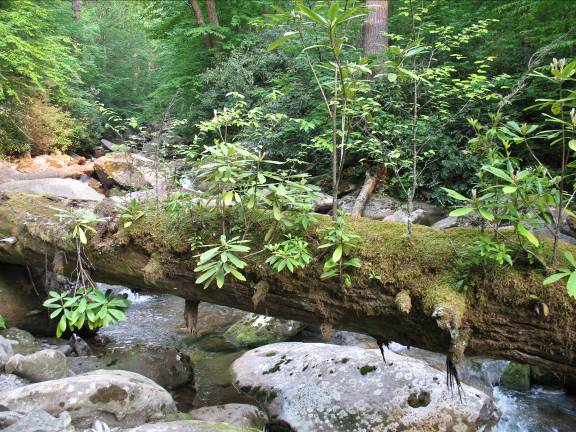

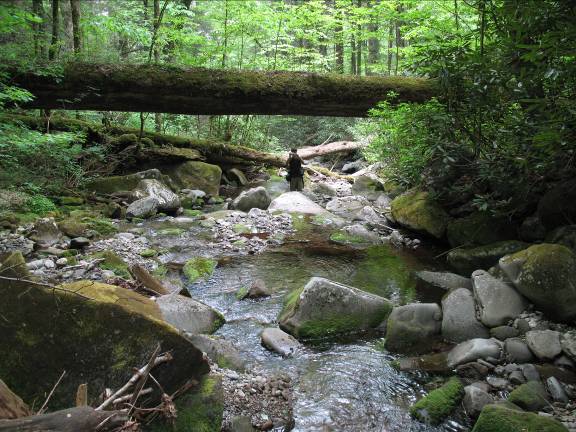
Will F. Blozan , February 17, 2009
President, Eastern Native Tree Society
President, Appalachian Arborists, Inc.
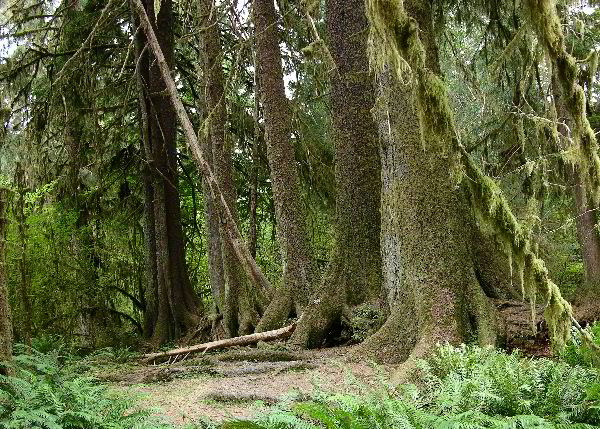 O
O
Olympic National Park, WA - colonade of sitka spruce and western
hemlock straddling a nurse log. photo by Edward Frank

Cook Forest State Park, PA - photo by Edward Frank
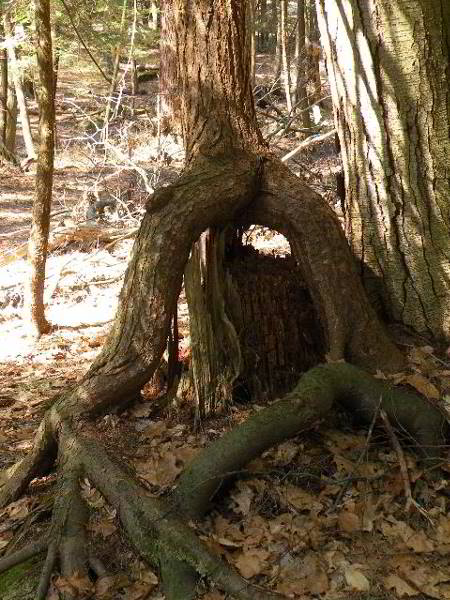
Cook Forest State Park, PA - photo by Edward Frank
Don Bertolette writes (March 26, 2009)
Randy/ENTS-
On the topic of nurse logs, I ran across a recent photo I took in a
foxtail pine forest ...a foxtail pine may live to be 2000
years...once dead, they may remain vertical for decades. Once
horizontal, it may take even longer to degrade into duff.
The young foxtail seedling growing at the tip of the dead and down,
soon to be duff foxtail pine in the foreground, probably came from a
seed that may have taken years to encounter the right combination of
seasonal moisture, soil warmth, and scarification regime to burst
into life and lend optimism to a forest currently facing changing
climate conditions.
-Don
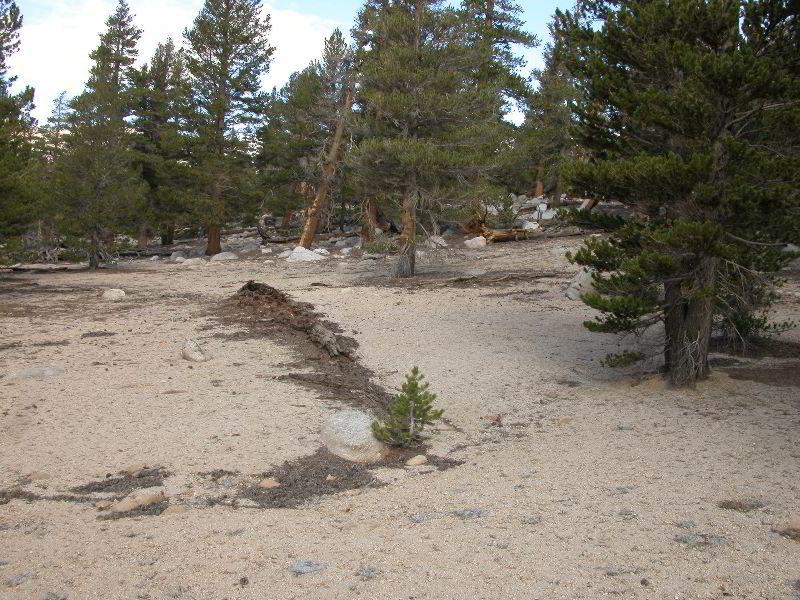
Continued at:
http://groups.google.com/group/entstrees/browse_thread/thread/a8cec49702ede329?hl=en
|